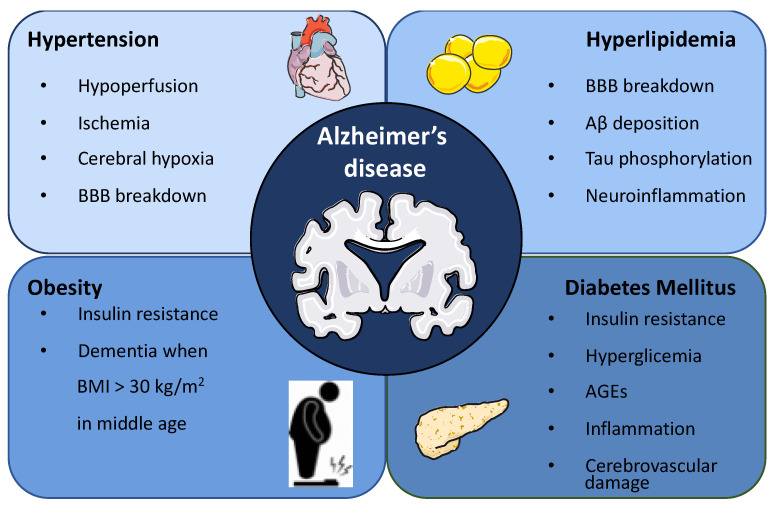Figure 1.
Metabolic syndrome as a risk factor for Alzheimer’s disease. Metabolic syndrome is defined as the coexistence of obesity, hypertension, hyperlipidemia and diabetes. Specifically, hypertension alters the vascular walls leading to hypoperfusion, ischemia and cerebral hypoxia, triggering AD development. Hyperlipidemia compromises BBB integrity, increases Aβ peptide deposition, promotes Tau hyperphosphorylation and induces neuroinflammation compatible with AD. The involvement of obesity as a risk factor for AD development is still under debate, although some studies have demonstrated that obesity in middle age is a risk factor for dementia. The association between diabetes mellitus (DM) and AD has been extensively studied. The suggested mechanisms underlying this association include, among others, insulin resistance, insulin receptor impairment, hyperglycaemia-induced toxicity, advanced glycation end products (AGEs)-induced adverse effects, inflammation and cerebrovascular damage.

